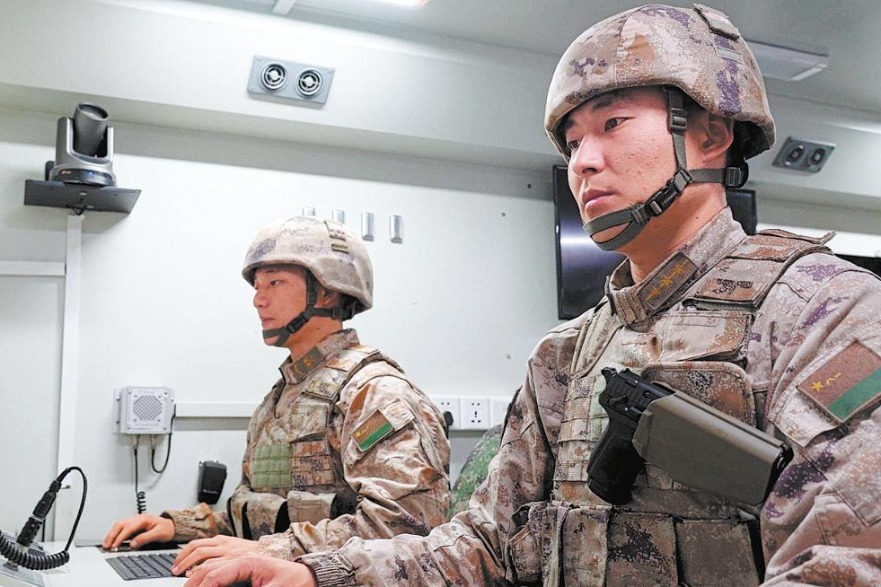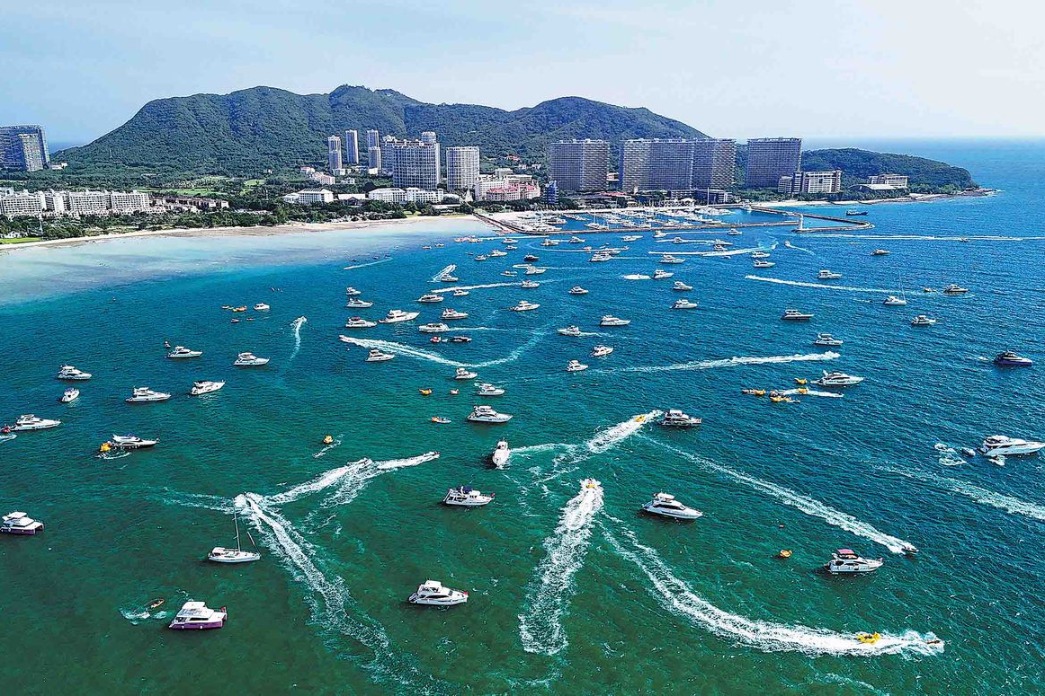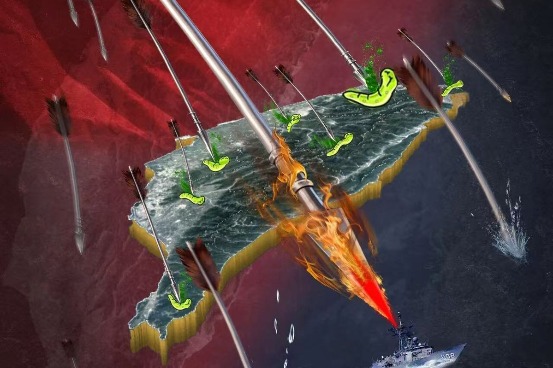How is China's development model different from the west?


The development of China is unparalleled in the history of humanity. There is no nation that has managed to pass from a status of general poverty to having even defeated absolute poverty, after a century from the CPC foundation. China has become a key strategic player on the international chessboard and its development models - both the political-economic and the organizational ones - are increasingly studied and taken as examples to follow.
1. Uniqueness
One of the main key words in Chinese diplomatic tradition is “co-existence”, rejecting confrontation between political entities. China is promoting constantly ideas and practices, which reject international competition and conflict. Becoming the second economic power at global level in less than 70 years, Chinese economic and social rise has been astonishing, seen by the US-NATO system as a threat (at least since the end of 1990s). Chinese contemporary experience is amazing not only for its fast development, but also for its unique characteristics, due to its civilization longevity.
There is a huge difference indeed between the rise of western powers and the rise of China. The latter has been a peaceful ascent, achieved without harming third governments and without waging wars or exploiting peoples. In other words, the "Chinese miracle" has not come down from heaven and has not ever related to colonialist and imperialist practices. On the contrary, the great transformation of the People's Republic was only possible thanks to the policies implemented by the Communist Party of China in the last 100 years.
My recent book on “The Chinese pathway. A challenge for a shared future” (available in Italian, and in short in Chinese and English) tries to depict the uniqueness of the Chinese model at national and international scales vis-à-vis the western ones.
Chinese civilization, although highly modernized, and capable of learning and adapting elements typical of western development, has remained extremely different in its peculiar longevity. In contemporary China’s politics, historical, philosophical and practical continuities prevail, centered on the Confucian tradition, which is historically combined with Chinese Taoism and Buddhism. In short, the Chinese political system has not been westernized – as well explained by Martin Jacques (2012) - unlike other developing countries. A better knowledge of the reality of the People's Republic of China should be the minimum requirement for promoting virtuous, peaceful and far-sighted cooperative international relations.
The combination of mutual knowledge and respect should be a common, minimum and basic reference in the functioning of global governance that, in Chinese aspirations, should promote peaceful relations. All this requires commitment, discussion, dialogue and mutual understanding.
2. Understanding China’s Development
The China’s development is attached to three main real and concrete reasons.
First, it is a prerogative of the Chinese history. Fairbank (1992) and Giovanni Arrighi(2007) underline that China lived in peace for about five centuries (XIV-XIX), with few regional exceptions, whilst the west experienced only one century of continuous peace in Europe (1815-1914). Overall, Chinese experience has never been expansionist and never, neither today, a promoter of arms race, contrary to the western powers.
Second, peace and peaceful development is also a prerogative (and an aspiration) of the best socialist internationalist tradition, in which it is considered a pre-condition to the masses’ development and emancipation. Just consider that China, in the recent history, has always been part of anti-imperialist forces, also as leader of no-aligned Third World Countries.
Third, peace is a prerogative of Chinese diplomatic culture in the contemporary history. Said culture is summarized by Chinese five principles since 1954: mutual respect; non-aggression; non-interference; equality and mutual advantages and peaceful coexistence.
3. BRI
From this point of view, the Belt and Road Initiative (BRI) is an important opportunity in this direction. The BRI stimulates the construction of peaceful relations through exchange, dialogue and mutual knowledge. The BRI is not only a way to strengthen commercial and financial interdependence, but also an opportunity to strengthen political coordination and increase the spaces for cooperation between peoples, working on cultural exchange and mutual knowledge.
I can say that China is fully grasping the need to respond to the difficulties and tensions deriving from the lack of connectivity between geographical areas. By proposing (and implementing) an initiative centered on Eurasia and Africa, but which covers the whole world, the BRI evokes the deeds and events of exchange and cooperation of the ancient silk road (a term coined only in the nineteenth century), whose history represents a first, important cultural element in inspiring the idea of the current initiative.
BRI initiative puts the real economy first, it puts the well-being of people over particular interests, and cooperation over competition. In other words, BRI replaces alliance blocs’ logic with partnerships, being inclusive (without political discrimination between countries), and confrontation with non-coercive actions (there is no request for military alliances or investments in this sense). The west, historically, has never given birth to a similar project, much less during the period of its maximum rise.
4. Other differences
The expansion of capitalism determines a growth of antagonism between different actors who seek to acquire or destroy the assets of rivals through commercial and financial competition, or geopolitical maneuvers. The creation of new spaces for "endless accumulation". During a crisis of over-accumulation, certain economic assets abroad are in fact devalued by means of financial and/or military operations (US model), in conditions, for example, of low competition and political corruption, thus opening up to fierce competition for their hoarding at very low prices, where the strongest wins.
On the contrary, the Chinese international projection is different. It is taking place in the absence of military expansionism and without the creation of a suffocating credit system. I refer to the Chinese loan lines that are sustainable in terms of interest rates negotiated with various partners and do not imply political conditionality (non-interference, in fact). Finally, China offers strong support for multilateralism and peaceful coexistence. This diversity with respect to western expansionism is showing the emergence of a globalization with Chinese characteristics, linked to a particular historical and political background.
The west, on the contrary, with the new systemic crisis linked to Covid-19 epidemic, unravels errors and structural weaknesses accumulated in previous decades, which are correlated to the political-economic model of neoliberal globalization. Communication chaos, institutional fragmentation, underestimation and politicization of the pandemic by western authorities are just some of the possible recent examples.
5. From neoliberal globalization to a globalization with Chinese characteristics?
Neoliberal globalization can be associated with a process engineered by the west starting with the monetarist counter-revolution of the late 1970s. Decades of growing interconnectedness, to which different areas of the world have been linked in a more or less advantageous way, but which at the same time have exacerbated socio-economic inequalities and accelerated processes of destabilization: just think of the systemic cycles of financial and economic crises in the 1980s (sovereign debts), 1990s (banking, monetary and debt) and 2000s (financial and debt) and the numerous "humanitarian" wars and regime changes attempted or succeeded on behalf of a false “war on terrorism” (amply fueled and supported in an anti-Chinese, anti-Russian and anti-Iranian function for the purpose of strategic domination).
Today, more and more, the nature of neoliberal globalization is unfolding clearly. Having promoted a growing reduction of state intervention in the economy (with a push for market deregulation), and having transformed the state role in a sort of spokesperson for business communities (and their particular interests), neoliberal, western globalization has demonstrated its deep and structural flaws. This is clear above all when it is compared with socialism with Chinese characteristics and with the idea of building a community with a shared future for mankind. The latter has nothing to do with socio-economic Darwinism promoted by western neoliberalism.
As mentioned, the history of neoliberal globalization has been marked by systemic crises and humanitarian wars (actually operations in support of regional terrorism for strategic purposes). Processes that have shown the most nefarious and de-structuring outcomes since the 1990s.
On the other hand, the BRI and the extension of Chinese influence at international level concerns a new infrastructural geography, of ports, railways, industrial zones, digital and air links, as well as cooperation in research and management of global problems, such as health.
Chinese model of peaceful ascent keep being the unique alternative to the aggressive and destabilizing western model. US and its strict allies are trying to contrast China's rise, however, to do so they have to invent “threats”. They would like to re-establish and keep reproducing a unipolar world system through military, financial, social and media operations combined, playing constantly with fire and losing their last residual pieces of credibility.
US is condemning itself and the world to constant instability and chaos, whilst China tries to fill the gap between nations in a constructive, reasonable and efficient way. The latter, for the benefits of humanity and not only one part of it.
By Fabio Massimo Parenti (International Professor at the Italian International Institute Lorenzo de 'Medici - Marist College, and Foreign Associate Professor of International Studies at China Foreign Affairs University, Beijing).


































